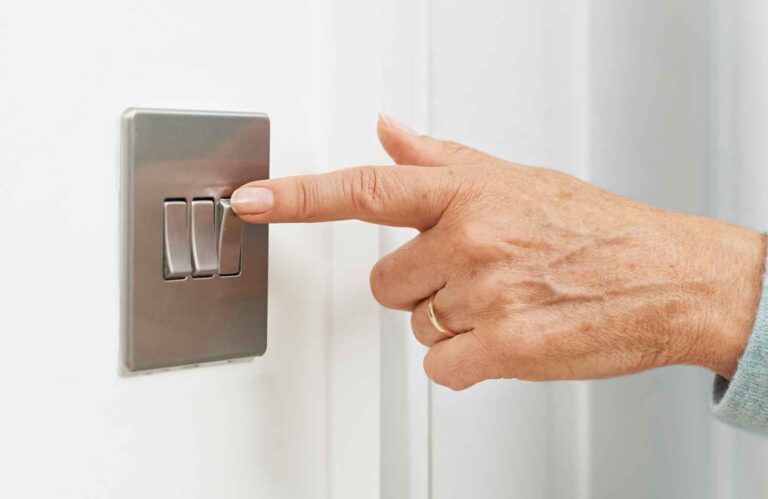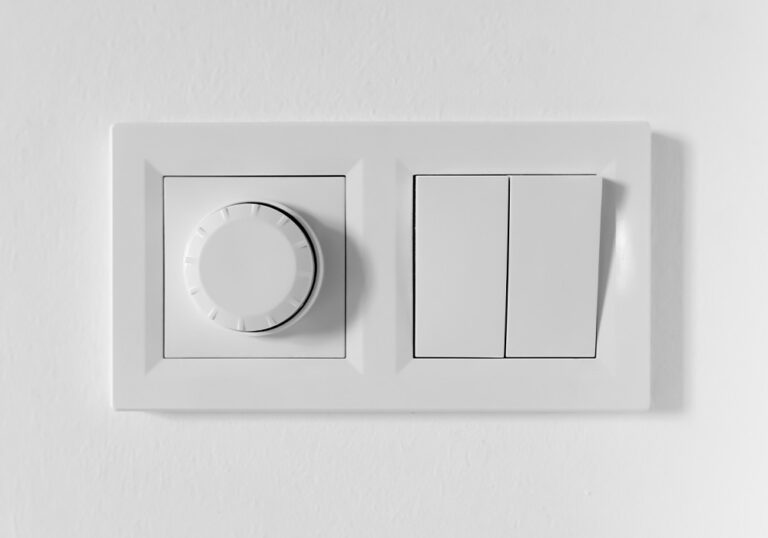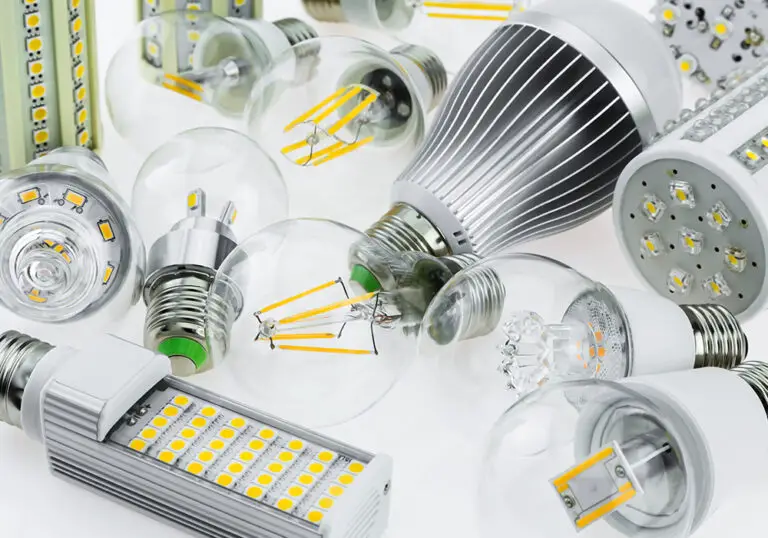Light Turning On By Itself: Possible Causes and Solutions
Lights turning on by themselves is a phenomenon that has puzzled people for years. It can be a frustrating experience, especially when it happens in the middle of the night, waking you up from a sound sleep. While there are many explanations for why this happens, it’s essential to understand the common causes to prevent it from happening again.
One of the most common causes of lights turning on by themselves is a problem with the bulb or the socket. Overheating, poor bulb quality, or a bulb that’s not the right type for the socket can cause flickering or sudden turning on and off of lights. Another cause could be an issue with the power supply or a poor connection, which can also cause lights to flicker or turn on by themselves. Understanding these causes can help you troubleshoot the issue and prevent it from happening again.
Technology can also play a role in lights turning on by themselves. Smart home devices, such as voice-activated assistants or motion sensors, can sometimes malfunction and cause lights to turn on unexpectedly. Paranormal explanations have also been suggested, with some people believing that spirits or ghosts are responsible for the phenomenon. While there is no scientific evidence to support this claim, it’s essential to take safety measures and precautions to ensure your home is secure.
Key Takeaways
- Lights turning on by themselves can be caused by a variety of factors, including problems with the bulb, socket, power supply, or technology.
- Taking safety measures and precautions, such as ensuring your home is secure, can help prevent lights from turning on by themselves.
Understanding The Phenomenon of Lights Turning on by Themselves
Lights turning on by themselves is a phenomenon that many people experience. Some people attribute this to spirits or ghosts, while others believe it is due to technical faults. However, the truth is that lights turning on by themselves is usually caused by a loose connection in the wiring within the switch.
When there is a loose connection, the switch can send a signal to turn on the light even when no one is using it. This can happen due to a variety of reasons, such as wear and tear, poor installation, or environmental factors like moisture or temperature changes.
It is important to note that lights turning on by themselves can also be a sign of a more serious electrical problem. In some cases, it can be a symptom of a short circuit, which can lead to electrical fires or other hazards. Therefore, it is recommended to seek professional help if you experience this phenomenon frequently.
In conclusion, lights turning on by themselves is a common phenomenon that can be caused by technical faults. It is important to address the issue promptly to avoid potential hazards and ensure the safety of your home or workplace.
Common Causes of Lights Turning on by Themselves
Lights turning on by themselves can be a frustrating and puzzling experience. In this section, we will explore some of the common causes of this phenomenon.
Electrical Faults
One of the most common causes of lights turning on by themselves is an electrical fault. This can be due to a variety of reasons, including leakage current, wiring defects, or insulation faults. Leakage current occurs when electrons cross the insulation barriers between two conductors, allowing a small amount of electricity to flow between them. This can cause lights to turn on by themselves, even when there is no one in the room.
Wiring defects can also cause lights to turn on by themselves. This can be due to a variety of reasons, including frayed or damaged electrical cords, faulty equipment, or poor wiring. Insulation faults can also cause lights to turn on by themselves. This can be due to a variety of reasons, including moisture, heat, or UV radiation.
Faulty Light Switches
Another common cause of lights turning on by themselves is a faulty light switch. This can be due to a variety of reasons, including a loose connection, a damaged switch, or a faulty timer. A loose connection can cause the switch to turn on by itself, even when there is no one in the room. A damaged switch can also cause lights to turn on by themselves, as the switch may be unable to maintain a stable connection.
A faulty timer can also cause lights to turn on by themselves. This can be due to a variety of reasons, including a malfunctioning timer, a faulty relay, or a defective wiring harness. A malfunctioning timer can cause the lights to turn on at the wrong time, while a faulty relay can cause the lights to turn on by themselves, even when the timer is working correctly.
Power Surges
Power surges can also cause lights to turn on by themselves. This can be due to a variety of reasons, including stormy weather, power outages, or voltage fluctuations. Stormy weather can cause power outages, which can cause lights to turn on by themselves when the power is restored. Voltage fluctuations can also cause lights to turn on by themselves, as the voltage may be too high or too low.
The Role of Technology
Smart Home Systems
Smart home systems are becoming increasingly popular, allowing homeowners to control their lighting remotely. These systems use Wi-Fi-enabled devices, such as smart bulbs and smart switches, which can be controlled using a mobile app or voice commands. With smart home systems, it is possible to turn lights on and off remotely, set schedules, and even create custom lighting scenes.
Motion Sensors
Motion sensors are another popular technology used to control lighting. These sensors use infrared technology to detect movement and turn lights on automatically. They are commonly used in hallways, staircases, and other areas where lighting is needed only when someone is present. Motion sensors can be adjusted to turn lights off after a certain period of time, helping to save energy and reduce electricity bills.
Timer Switches
Timer switches are another technology used to control lighting. These switches allow homeowners to set specific times for lights to turn on and off. This is particularly useful for outdoor lighting, as it can help to deter burglars and improve home security. Timer switches can also be used to create the illusion of someone being at home, even when the house is empty.
In conclusion, technology has played a significant role in the development of lighting control systems. Smart home systems, motion sensors, and timer switches are just a few examples of the many technologies available to homeowners today. With these technologies, it is possible to control lighting remotely, save energy, and improve home security.
Safety Measures and Precautions
When experiencing the issue of a light turning on by itself, it is important to take certain safety measures and precautions to avoid any potential hazards or accidents. Here are some tips to follow:
- Turn off the light: The first step is to turn off the light. This will prevent any further electrical issues or potential hazards.
- Check the wiring: It is important to check the wiring of the light switch and the light fixture. Loose wiring can cause the light to turn on by itself, and it can also be a fire hazard. If the wiring appears to be loose or damaged, it is best to call a professional electrician to fix it.
- Replace the switch: If the wiring appears to be in good condition, the next step is to replace the light switch. A faulty switch can cause the light to turn on by itself or flicker. Make sure to turn off the power before replacing the switch.
- Install a timer: Another option is to install a timer switch. This will allow the light to turn on and off automatically at set times, eliminating the need to manually turn it on and off. This can also save energy and money on electricity bills.
- Consult a professional: If the issue persists or if you are unsure about how to handle the situation, it is best to consult a professional electrician. They can diagnose the problem and provide a safe and effective solution.
In conclusion, taking the necessary safety measures and precautions when dealing with a light turning on by itself can prevent potential hazards and ensure the safety of you and your home.
Professional Help and Solutions
If the issue of lights turning on by themselves persists despite trying all the DIY solutions, it is time to seek professional help. There are two types of professionals that one can consult in such a situation: an electrician and a technological expert.
Hiring an Electrician
An electrician is a professional who deals with electrical systems and wiring. They have the necessary knowledge and expertise to identify and fix any electrical issues. If the problem of lights turning on by themselves is due to faulty wiring or any other electrical issue, an electrician can efficiently identify and fix the problem.
Before hiring an electrician, one should ensure that they are licensed and experienced. It is also advisable to get a quote for the service beforehand to avoid any surprises.





